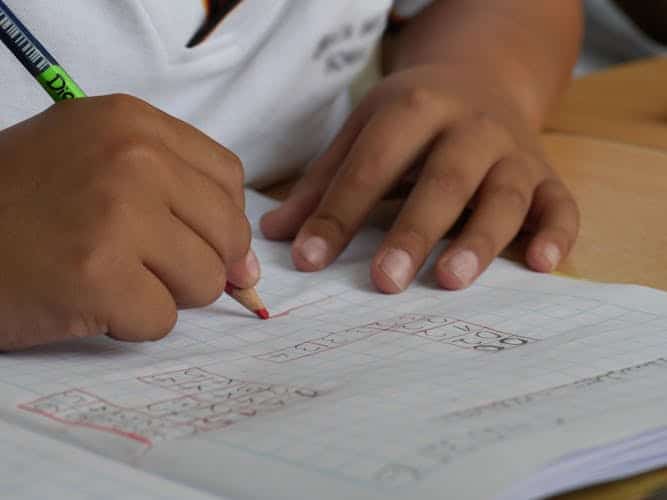Exam periods remain a delicate time. Children rarely have time for any other activities apart from studying for their exams. The need to be successful and come out with flying colours usually keeps children on their toes during this period. Some other times, the fear of not disappointing family and friends dictates children’s attitudes towards preparation for exams. Developing the right attitude towards preparation for exams and tackling other life demands can be overwhelming for children.
Children certainly need guidance in coping with the demands of exam preparation. The help of parents becomes important at this special period. It is essential that parents make themselves available to support their wards emotionally. Easing the stress children face during preparation for exams and coping with life demands start with the support of the parents.

Adopting the right coping skills for Children
Coping skills are important for both adults and children. However, children need these survival skills more than adults. Guiding children using different coping skills is important but ensuring the adoption of the right coping skills for a situation is more important. Different stages children pass through require special forms of attention from parents.
Demanding times such as when children are preparing for exams are one of the best times to study and test the coping capacity of children. This period tests the strength of children and reveals their breaking points. Parents can pick a lot from this period and have a good starting point in assisting their wards.
For instance, while children have their preparation for their exams in top gear, children who have a low coping capacity for some subjects will deliberately ignore studying for such subjects. This set of children will prefer to channel their energy into doing other unrelated activities when they should be studying. This definitely will not solve the problem, it will even add to it.
The following are some healthy coping skills for children
Labelling Feelings
For some children, being able to aptly define and describe how they feel is all that they need in overcoming an uncomfortable emotion. Parents can assist their wards in this regard by giving them the opportunity to voice out and talk about their emotions. Parents should encourage children to describe how they feel per time. They should also ensure wards are comfortable about verbalizing their feelings of sadness or joy. This aids in coping with different forms of emotions.
Breathing Exercises
Taking deep breaths remains a means of escape at different overwhelming periods for both adults and children. Parents can teach kids to simply breathe in through their noses and then breathe out slowly through their mouths.
Another fun way of doing this is by the popular “smelling the pizza”. Tell them to breathe in through their nose as if they are smelling a piece of pizza. Then, tell them to blow on the pizza to cool it down. Encourage your children to do this several times to help them feel better.
Exercising
This always works. Exercise relaxes both the mind and the body. It aids in keeping calm in difficult situations and improves one’s excitement rate in case of mood swings. Strength-building exercises (like lifting weights) and aerobic exercises (like running) can be excellent ways to help kids regulate their emotions.
Art Work
Some children enjoy creativity and this refreshes them. Children who love colours, sculpting or creating other forms of artwork can be encouraged to do so when they are stressed out.
Reading
Reading books can serve as a great temporary distraction. it is important to discover your child’s favourite genre and make them available. When your child is done reading, she might feel better equipped to tackle a problem because she’s feeling calm and rejuvenated.
Playing a Game
Just like exercise, playing games refreshes the mind also. If you notice that your ward is worried or inactive, it might be good to suggest playing his favourite game. Whether you play a board game or kick around a ball outside, doing something active can help change the channel in his brain. Then, he’ll be able to think about other things, rather than dwell on all the things that make him feel bad.
Playing Music
Whether your child likes to make his own music on a keyboard or he enjoys listening to calming songs, music can affect his brain and his body. You can find out the best genre he enjoys and encourage him to listen when he is down.
Music is often incorporated into treatment programs for physical health, mental health, and substance abuse problems because it has been shown to speed healing, calm anxiety, and reduce depression.
Help your child discover how music can be helpful to him. Are there songs that calm him down? Does certain music cheer him up?
Positive Self-Talk
Children are likely to entertain negative thoughts when they are upset. A child may think things like ” I am not good enough”, ” I am a failure” or “None of the other kids wants to be my friend.”
Teach her how to speak to herself kindly by asking, “What would you say to a friend who had this problem?” She’s likely to have some kind, supportive words. Encourage her to give those same kind words to herself.
Ask for Help
When your child is struggling with something, ask, “Who could help you with this?” Help her recognize that there are likely multiple people who could assist her.
A homework issue might be resolved by calling a friend who can explain the problem in a different way. Or, it might be helpful to talk to the teacher the following day. See if your child can name at least a few people who could help her.
Children who know that it’s okay to ask for help will feel empowered. They’ll know that they don’t need to know everything on their own and that it’s okay to ask for support.
Teaching your children this set of coping skills will go a long way in preparing them for life demands and ensure that they are in the right frame of mind to prepare for their exam.
Study Timetable
Assisting your children in planning their study timetable also helps in reducing the pressure that comes with exam preparation.
As parents, you can assist your children in putting their time into good use by:
- ensuring they study the difficult subjects first, and not at the end of the day when they are tired
- helping them maintain focus at work. They can have 20 minutes of working followed by 10 minutes of rest as a good starting point.
- Marking a specific time for each subject in order to have time to prepare for all subjects.
- Allowing them to share their visions and goals with you. It encourages them to do better.
- Ensuring they do not compare themselves with others. It is okay to prepare uniquely in a way that works for them.
Preparing your children for exams and helping them cope with life demands is an active parenting role. You need to be deliberate in finding out key obstacles to their concentration. Finding these obstacles dictates the steps you will take in combating them. As a parent, you must ensure you discuss the steps you are taking with them and ensure it is mutually agreed to as being helpful.
Click to read: [How To Help Children Build Good Study Habits In The Digital Age]



